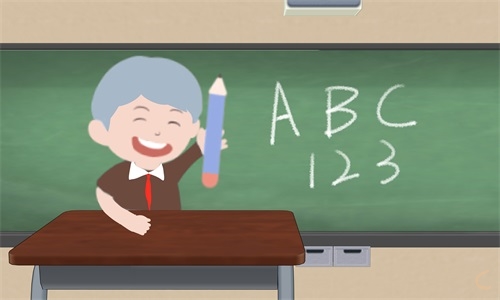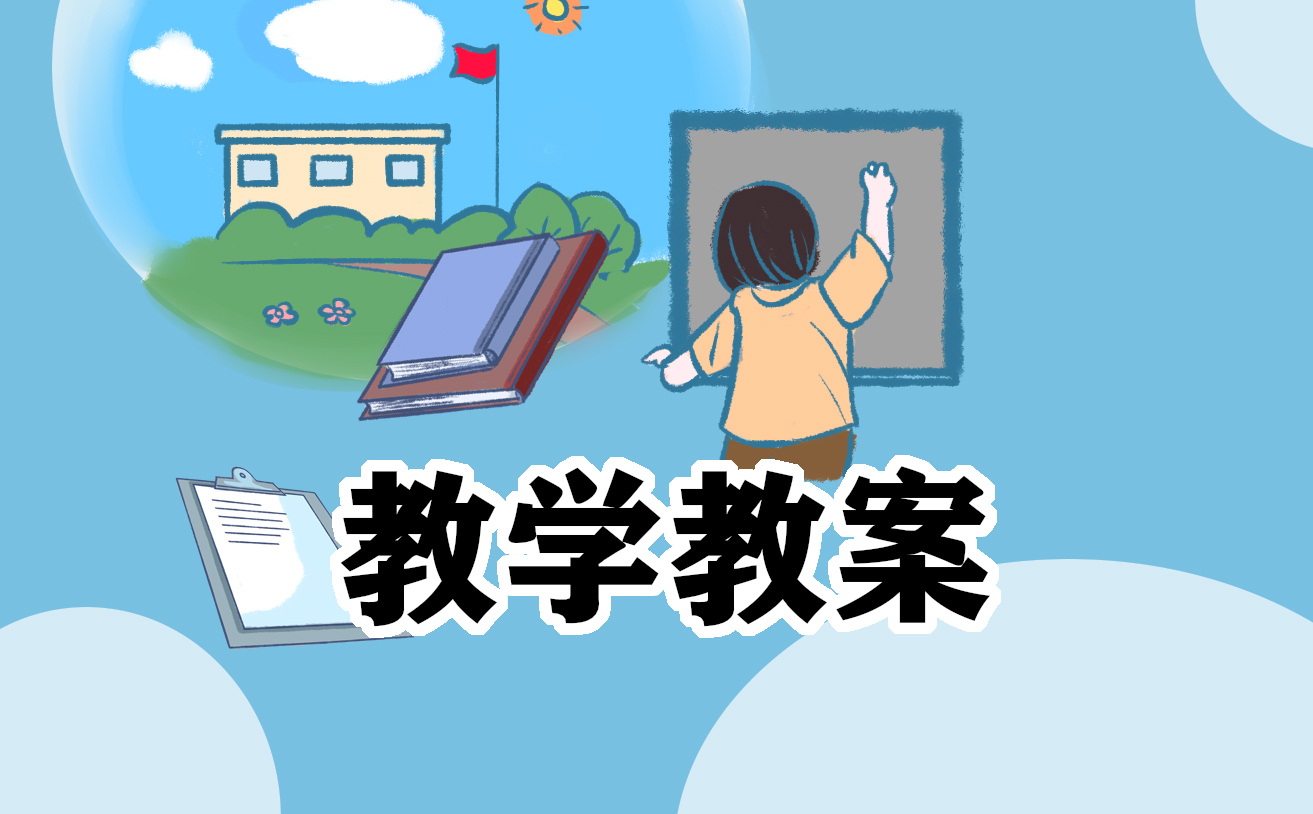高一英语必修二教案(精选5篇)
希望我们能够共同度过这段愉快的学习时光,相互学习、相互进步。下面是小编为大家整理的高一英语必修二教案,如果大家喜欢可以分享给身边的朋友。

高一英语必修二教案 篇1
教学目标
To learn to talk about kinds of music
To learn to read about bands
To study The Attributive Clause (in/ for/ with/ by+which/ whom)
To learn to write an e-mail
教学重难点
To study The Attributive Clause (in/ for/ with/ by+which/ whom)
To learn to write an e-mail
教学工具
课件
教学过程
I. Warming up
Warming up by describing
Good morning, class. Today we are going to talk about an interesting topic --- music. As we know, music is a kind of art of making pleasing combinations of sounds in rhythm, harmony and counterpoint. Music can produce a lively and happy atmosphere and bring people relaxation after hard work, which can reduce the tiredness. Listening to music also makes people feel happy and nice. How many do you know about music? Can you tell about different kinds of music? Now turn to page 33, look at the pictures, read the captions and listen to the different kinds of music. See if you can guess which music matches with which picture.
Warming up by discussing
Hi, everyone. Do you like music? How much do you know about music? Can you tell about the different kinds of music? Please turn to page 33. Look at the pictures. Let’s listen to some music. Let’s see if you can guess which music matches with which picture.
Classical music Country music Rock ‘n’ Roll
Rap Orchestra Folk music
Yes, you are right. I’m sure you will really enjoy yourselves after listening to all these beautiful music. What kind of music do you like better, Chinese or Western, classical or modern? Why? How does music make you feel? Why do you like to listen to music? Let’s discuss these questions in small groups. Try to share your opinions with one another.
II. Pre-reading
1.Thinking and saying
Have you heard about any of the famous bands in the world? List some if you can.
For reference: I’ve heard about “The Beatles”, “Back Street Boys”, “The Eagles”, “West life” and “Pink Floyd”.
2.Listening, talking and sharing
Let’s listen to some pieces of music from different bands. Work in groups of four. Tell your group mates which band you like best. Why? Then the group leader is to stand up and share the group idea with the class.
For reference: I am from Group 1. Our group likes “The Beatles” best. We like their style of performances. Listening to their performances, we will feel relaxed, amused, and their performances make us think a lot about life.
Do you know anything about “The Monkees”?
For reference: “The Monkees” is a band that was first popular in the 1960s in America. Unlike most bands of the time, the Monkees were not formed by its members but rather by TV producers. They were a fictional band in the TV show of the same name. The band was composed of Mike Nesmith, Mickey Dolenz, Davy Jones, and Peter Tork. All the members had some musical experience. Let’s come to the reading --- The Band That Wasn’t and find more about them.
III. Reading
1.Reading aloud to the recording
Now please listen and read aloud to the recording of the text THE BAND THAT WASN’T. Pay attention to the pronunciation of each word and the pauses within each sentence. I will play the tape twice and you shall read aloud twice, too.
2.Reading and underlining
Next you are to read and underline all the useful expressions or collocations in the passage. Copy them to your notebook after class as homework.
Collocations from THE BAND THAT WASN’T
dream of doing , at a concert , with sb. clapping and enjoying …, sing karaoke , be honest with oneself, get to form a band, high school students, practice one’s music, play to passers-by, in the subway, earn some extra money, begin as a TV show, play jokes on…, be based loosely on…, the TV organizers, make good music, put an advertisement in a newspaper, look for rock musicians, pretend to do sth., the attractive performances, be copied by…, support them fiercely, become more serious about…, play their own instruments, produce one’s own records, start touring, break up, in the mid-1980s, a celebration of one’s time as a real band
3.Reading to identify the topic sentence of each paragraph
Skim the text and identify the topic sentence of each paragraph. You may find it either at the beginning, the middle or the end of the paragraph.
1st paragraph: How do people get to form a band?
2nd paragraph: Most musicians meet and form a band.
3rd paragraph: One band started as a TV show.
4th paragraph: “The Monkees” became even more popular than “The Beatles”.
3.Reading and transferring information
Read the text again to complete the tables, which list how people formed a band and how The Monkees was formed by the TV organizers and became a real band.
How do people get to form a band?
Members High school students
Reasons They like to write and play music.
Places They practice their music in someone’s home.
Forms They may play to passers-by in the street or subway.
Results They can earn some extra money. They may also have a chance to dream of becoming famous.
How was The Monkees formed and became a real band?
The Monkees in 1968 (left to right): Micky Dolenz, Peter Tork, Mike Nesmith & Davy Jones
beginning of the band It began as a TV show.
style of the performance They played jokes on each other as well as played music.
first music and jokes Most of them were based loosely on the band called “The Beatles”.
development of the band They became more serious about their work and started to play their own instruments and write their own songs like a real band. They produced their own records and started touring and playing their own music.
changes of the band The band broke up in about 1970, but reunited in the mid-1980s. They produced a new record in 1996, which was a celebration of their time as a real band.
4. Reading and understanding difficult sentences
As you have read the text times, you can surely tell which sentences are difficult to understand. Now put your questions concerning the difficult points to me.
IV. Closing down
Closing down by doing exercises
To end the lesson you are to do the comprehending exercises No. 1, 2, 3 and 4.
Closing down by having a discussion
Do you think the TV organizers were right to call “The Monkees” a band when they did not sing or write their own songs? Why?
For reference: I don’t think the TV organizers were right to call “The Monkees” a band when they did not sing or write their own songs because singing and writing its own songs was the basis of a band.
Do you agree that the jokes were more important than the music for this band? Give a reason.
For reference: Yes. I think it is the jokes that really attract more fans.
No. I think the purpose of forming a band is getting people to enjoy the spirit of music. It’s more important than playing jokes just to make people laugh.
Closing down by retelling the form of the band The Monkees.
I shall write some key words and expressions on the board. You are to retell the form of the band according to these words.
课后小结
学了这节课你有什么收获?
课后习题
完成课后习题一、二。
板书
Unit 5 Music
高一英语必修二教案 篇2
教学目标
1. To practise listening comprehension.
2.To practise making decisions and reasoning
教学重难点
1. To practise listening comprehension.
2.To practise making decisions and reasoning
教学工具
课件
教学过程
Step1. revision
1. check the homework exercises.
1). It has been reported that children will be offered free education.
It has been reported that free education will be offered to children.
2). It has been said that we will be offered the latest computer science course book.
It has been planned that the latest computer science course book will be offered to us.
3). I have been told by Peter that I will be lent his notebook computer for a week.
I have been told by Peter that his notebook computer will be lent to me for a week.
2. Question: What can computers be used as?
Step2. Lead-in
As we know, science and technology is developing very fast and computers have become smaller and smaller. They have been used in many fields. So, the 21st century is the century of information technology What does it mean? Does information technology/ IT only mean things like computers? Of cause not. Actually, it means more than computers. Computers are just one kind of IT. What else do you know is part of IT?
(TV, radio, CD-ROM, DVD, books……)
Step3. Listening (SB)
1. Pre-listening: What are the changes brought by different forms of IT ?
What are the advantages and disadvantages of them ?
2. While-listening:
Go through the chart and make sure the students look at the chart before they listen to the tape. (This is to sharpen their attention and listen for the answers. This will also help them get the gist of the text.) Then Listen to the tape and finish filling in the chart. (If necessary, play the tape for several times.)
Say: After listening to their talk, we know all kinds of IT have both disadvantages and advantages.Let’s check the answers together.
Type of IT Advantages Disadvantages
TV You can both listen and watch. You cannot write to friends.
Web You can find information. It is very expensive.
Radio You can listen to English. You cannot watch a film.
Book You can get information. Sometimes it is out of date.
3. Post-listening:
1) (pair work): decide which type of IT is best for you to use right now. Make your choice and give your reasons by using the following expressions.
I think that….
In my opinion, ….
I believe that….
I agree because….
I disagree because….
I’ve decided that….
2) (group work): Discussion :
Computers are useful and have brought us lots of good things, but they also cause bad effects. What attitude should we have towards the computer? (Make good use of it but never get trapped by it.)
Step4. Speaking
1. Pre-speaking
Say: From what we have learn, we should admit that computers and the web have a great influence on the school education as well as people’s life. It has come into people’s everyday life and many families hold computers in their homes. Now there is a task for you.
2. While-speaking
1) Situation: You have been asked by your parents to help choose computers for your home. You and your friend have looked at several computers. Talk about the special things each computer can do. Make a decision about which kind of computer to buy and explain why.
Information input: Show students some pictures of different computers (desktop computer & laptop computer & …)
Language input: Useful expressions (Repeat it to strengthen students’ ability of use it.)
Supporting an opinion Challenging an opinion
I think that … , because … Perhaps, but what if / about …
First, … Have you thought about …
One reason is that … What makes you think that
I think it is better because… I don’t like it because….
(Pair work )Use the expressions to support your opinion or challenging other’s opinions.
2) Oral report: (individual work )
Do an oral report to your father and start your report like this: I looked at many different computers. The one I have chosen is the PEP personal computer. One of the main reasons is that it is suitable for homes. I found that…
3. Post-speaking
Conclusion—What useful expression do we use to make a decision and reason?
(In this way, they can review and use the words and phrases again.)
Step6 Pre-writing
Say: Imagine what problems and delights this android might have to deal with while it is serving you. Try yourself in someone else’s shoes is an important way of understanding how other people feel.
Then discuss: You are an android. You work for a family with one child who is very spoiled. The parents want you to do everything for them. The parents are nice, but they often ask you to watch over their child. How do you feel? What would you do if the child asked you to do his/her homework for him/her? Would you ever tell the child “no”?
Step7 Writing
Say: Write a passage about the result of your discussion! It should contain:
What do you have to do?
What is the child like?
What is the parents’ requirement of the child?
What do the parents want you to do?
What does the child want you to do?
Then what will you do? How do you feel?
Sample writing:
Hello everybody, my name is Liu Yan.I am a 321 model android.I work for the Li family. Mr and Mrs Li work very hard too.Mr Li is an architect and designs great tall apartment blocks.Mrs Li is a doctor and has to look after many patients.I remember all the plans for Mr Li's projects and can tell Mrs Li which drugs are the best to give any particular patient. And I also look after their library. I store all the books that they borrow from their school or friends in my brain.Of course my brain is as large as a mountain, so work like that is no trouble to me.I really eat books just like people eat food.
The Lis have a child who is very spoiled. He needs me to remember all his school textbooks so that I can do his homework for him.He just gives me the information on the subject, what has to be done and the page numbers and I get on with it while he enjoys himself with his friends.Sometimes I don't think it is right to do his homework for him — it's somewhat cheating. However, his parents are very concerned at the pressure of work in school these days.The child has too much homework to do. They like him to go to the key school but they also want him to be able to have hobbies, learn to swim and keep fit! Poor child!
So they consider me the most important person in the family after themselves.I am always introduced to their friends and play with visiting children.I am the perfect family academic aid and, although I was not cheap to buy, Mr Li says I was worth every yuan!
Step8 Assessment
Get the students to assess their writing ability according to the following the questions:
1. Is your composition well developed?
2. Are your ideas well organized to the point?
3. Do you have a good choice of words and idioms in your writing?
4. Do you get a good mastery of complex structures of language?
5. What kind of mistakes have you made in your writing?
Step9: Homework
Write about your discussion. You may begin like this:
Hello, everyone. My name is __X. I’m 321 model android. I work for the Li family….
课后小结
学了这节课,你有什么收获?
课后习题
完成课后习题一、二。
板书
Unit 3 Computers
高一英语必修二教案 篇3
教学目标
To help students learn to express attitudes, agreement & disagreement and certainty
To help students learn to read the text and learn to write diaries in English
To help students better understand “friendship”
To help students learn to understand and use some important words and expressions
To help students identify examples of Direct Speech & Indirect Speech (I): statements and questions in the text
教学重难点
Words
upset, ignore, calm, concern, settle, suffer, recover, pack
Expressions
add up, calm down, have got to, be concerned about, go through, set down, a series of, on purpose, in order to, at dusk, face to facer, no longer/ not …any longer, suffer from, get/ be tired of, pack (sth.) up, get along with, fall in love, join in
Patterns
“I don’t want to set down a series of facts in a diary as most people do,” said Anne. →Anne said that she didn’t want to set down a series of facts in a diary as most people do.
I stayed awake on purpose until half past eleven…
…it was the first time in a year and a half that I’d seen the night face to face…
教学工具
ppt
教学过程
Hello, everyone. I’m so glad to be your teacher of English. I’d like to make friends with you, to build up a close friendship with you. Today we shall take Unit 1. The topic of this unit is Friendship. What do you think friendship is?
1. Warming up
⑴ Warming up by defining friendship
Hello, everyone. I’m so glad to be your teacher of English. I’d like to make friends with you, to build up a close friendship with you. Today we shall take Unit 1. The topic of this unit is Friendship. What do you think friendship is?
Yeah, there are many explanations about friendship. However, friendship is a relationship that can’t be restricted(限制)by definition(定义). It can only be experienced. True friendship can exist between any two souls, be it between people or animals. It can happen at any moment, to anyone. Even to lifeless things, like a diary, a ball, a friendship can happen.
Then what is your opinion about friendship?
Do you think that friendship is important to our life? Why?
⑵Warming up by learning to solve problems
Nice to meet you, class. We shall be friends from now on. For everybody needs friends. But being a good friend can sometimes be hard work. Learning how to solve problems in a friendship can make you a better friend and a happier person. Discuss the situation below and try to solve the problems wisely.
Common problems among teenagers
Solution
Some of the common problems include forgetting friends’ birthday, not keeping promises, letting out friends’ secrets and so on.
Maybe we can have a heart-to-heart talk with our friends to ask for forgiveness.
Situation 1: Friends get angry with each other when they try to talk about something difficult.
Try to understand your friend/ Try to talk about the problem in a different way.
Situation 2: Friends don’t know how to apologize
Start by telling each other that you are sorry. A simple apology is often enough and is a good starting point.
Situation 3: Some friends don’t know how to keep secrets.
Keep your secrets to yourself
Tips on being a good friend
Treat your friends the way you want to be treated. Keep secrets that are told to you.
Pay attention when your friend is talking. Keep your promises. Share things with your friend. Tell your friend the truth. Stick up for your friend.
⑶Warming up by doing a survey
Good morning, class. I am your teacher of English. Glad to be here with you. Today we shall take Unit 1 Friendship.
To be frankly, I’d like very much to keep a close friendship with you, my dear students, in the following years. How about you then? Ok, thanks. I do hope to be your good teacher as well as your helpful friend (良师益友).
Now please do the survey on page one.
Add up your score according to the scoring sheet on page 8. You don’t have to tell your results. You can just keep it a secret.
高一英语必修二教案 篇4
教学目标
I. 单词和词组
permission, nation,reduce, fetch, compare, therefore, remain, dislik, share, persuade, hardly, go ahead, burn down, compared to, give up, call for, be used to, get into the habit of
II. 日常交际用语
1.请求
May / Could / Can I do that?
I wonder if I can do that.
Would / Do you mind if I come earlier?
Will you tell me if can go now?
2.允许
Yes, please. / Of course. / Sure. / Certainly.
Go ahead, please.
That’s all right. / OK.
It’s all right to me.
3.拒绝
I’m sorry, but it’s not allowed here.
You’d better not.
I’m afraid not. It’s not right.
III.语法
复习名词性从句作宾语和表语的用法。
教学建议
教材分析
The main dialogue of this unit is to practise the students how to ask for permission, refuse and give permission ability. Though learning the way of expressing are able to remind the students speaking in daily life. This dialogue is the main idea to learn to use these phrase for permission. Though two men’s talking. Meanwhile this lesson offer some practice to help the students to understand and learn about the content of the dialogue. In order to master these phases, this lesson has short dialogue to give the students to speak each other.
重点词汇讲解
1.catch fire与be on fire
1)catch fire:begin to burn着火;烧着。catch fire有动态含义,揩“开始燃烧”。
例如:
Paper catches fire easily.纸容易着火。
The bed clothes catch fire and the whole house may be burnt down.铺盖着火了,整个房子都可能烧掉。
2)be on fire:be burning着火;失火。 be on fire有静态含义,指“燃烧的状态”。
例如:
The house was on fire.房子着火了。
She woke up at midnight and found the kitchen on fire.她半夜醒来发现厨房失火了。
高一英语必修二教案 篇5
第一部分:热身
快速应答:
1.How are you going to school everyday?
2.Thank you very much for your help.
3.Would mind my opening the window?
4.What day was it yesterday?
5.What's the weather like today?
第二部分:朗读
口语朗读技巧:
1.声调与降调
I have three English books, two Chinese dictionaries and five pens. Do you have a map in your hand? Yes, I do.
2.连读:将前一个单词最后的辅音与后一个单词开头的元音连在一起朗读。 half an hour ran out of not at all
3.失爆:当相邻两个爆破音在一起时,往往给前面一个爆破音留一个位置,但不
爆破,稍停随即发后面的爆破音,这种现象称为“失爆”。 hot bath the next day a good deal of I don’t believe I don’t know I want to say
朗读练习:
1. A smart housewife was told that there was a kind of stove which would only
consume half of the coal she was burning. She was very excited, and said: "That'll be terrific! Since one stove can save half of the coal, if I buy two, no coal will be needed!"
2.The little boy did not like the look of the barking dog.
"It's all right," said a gentleman, "don't be afraid. Don't you know the proverb: Barking dogs don't bite?"
"Ah, yes," answered the little boy. "I know the proverb, but does the dog know the proverb, too?"
上一篇:人教版六年级英语的上册教案
下一篇:初中英语听力课教案





